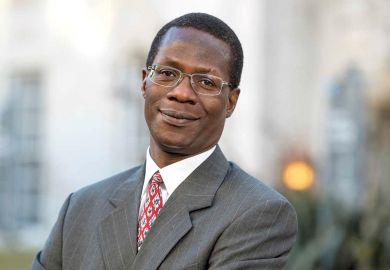Coming as it does from the Institute of Economic Affairs, it is hardly surprising that David Henderson's book is a polemic. The IEA's stated mission is "to improve understanding of the fundamental institutions of a free society with particular reference to the role of markets in solving economic and social problems". Translated into pithy Orwellese, that reads:
"More profits good, less profits bad." Throughout, the book hammers home this free-market message, but most of its arguments are old hat.
Nonetheless, the author believes they bear repeating because he fears businesses are being seduced by corporate social responsibility.
Indeed, Henderson is obsessed with CSR, seeing it as a malign bugaboo eating away at companies' profits. For him this is calamitous because it is not the business of business to bear social responsibility. The business of business is to make money. CSR wastes money on wishy-washy "social benefits", irresponsibly causing profits to tumble. Economic disaster will ensue, Henderson prophesies, as sure as death and taxes.
Arguing his case in a somewhat roundabout way, the author uses recent Organisation for Economic Co-operation and Development statistics to analyse the varying - and often surprising - economic growth rates achieved by different countries over the past half-century. Countering the view that all rich countries are getting richer while poor countries are getting poorer, he shows that this broadbrush picture ignores the diverse performances of many rich, and many poor, nations. Some that were at the bottom of the heap 50 years ago have leapt forward, while former leaders have slipped. South Korea, Taiwan, Malaysia and Thailand, as well as Chile, Greece, Ireland, Spain, Portugal, Israel and (pre-Aids) Botswana have all made rapid economic progress. Even in Lesotho, Tunisia and Turkey, gross domestic product per head has grown by more than 400 per cent since 1950.
As a consequence of these economic snakes and ladders, the author claims, even the mantra that 80 per cent of the world's population has only 20 per cent of the world's wealth is no longer true. His analyses show that the poorest 80 per cent of the world now hold 37 per cent of global wealth.
Hardly equality, but a tectonic shift towards fairness. So far, so good.
But from here, Henderson skids erratically off piste. Countries succeed, he argues, only when they embrace free-market economics. Those failing to flourish, together with the corrupt African tyrannies, are those where businesses are fettered and constrained - North Korea, Cuba, Libya and the old Soviet Bloc. China, naturally, is the author's pet example of an economy transformed by a switch from central controls to corporate profitability.
But Henderson is too blinkered by his polemic to distinguish between chickens and eggs. Many of the thriving countries in his list have thrived because they have received generous American or European handouts; and most of them received handouts only because donors were eager to promote free-market policies. Cavalierly ignoring such complications, Henderson insists that his analysis proves that anything that interferes with businesses' quests for profits is inherently bad; and CSR is irredeemably bad because it cons businesses into quasi-altruistic activities for which they have no commercial or democratic mandate. Worse still, CSR is so nebulous that its activities cannot be quantified even as they devour resources.
We have been here before, often. Naturally, activities employing resources to achieve social benefits cost money and depress profits, at least in the short term. But nobody nowadays seriously believes that property developers should build what they like where they like without permissions; or that employees should not have paid holidays; or that ships should not have lifeboats and buildings fire escapes. All these cost money, none generates quantifiable profits. But most of us believe they help make societies more humane.
Aside from its useful international analysis, The Role of Business in the Modern World is by no means a modern read. Slamming all business activity not directly devoted to profits is simplistic and stale. The difficult questions lie at the margins. Which social responsibilities can businesses sensibly undertake? How can they be measured and justified? CSR is not going away. The IEA would be wise to stop grouching and come to terms with it.
Winston Fletcher is visiting professor in marketing, Westminster University, and chairman, Royal Institution. For many years he worked in advertising.
The Role of Business in the Modern World
Author - David Henderson
Publisher - Institute of Economic Affairs
Pages - 203
Price - £12.50
ISBN - 0 255 36548 9
Register to continue
Why register?
- Registration is free and only takes a moment
- Once registered, you can read 3 articles a month
- Sign up for our newsletter
Subscribe
Or subscribe for unlimited access to:
- Unlimited access to news, views, insights & reviews
- Digital editions
- Digital access to THE’s university and college rankings analysis
Already registered or a current subscriber?



